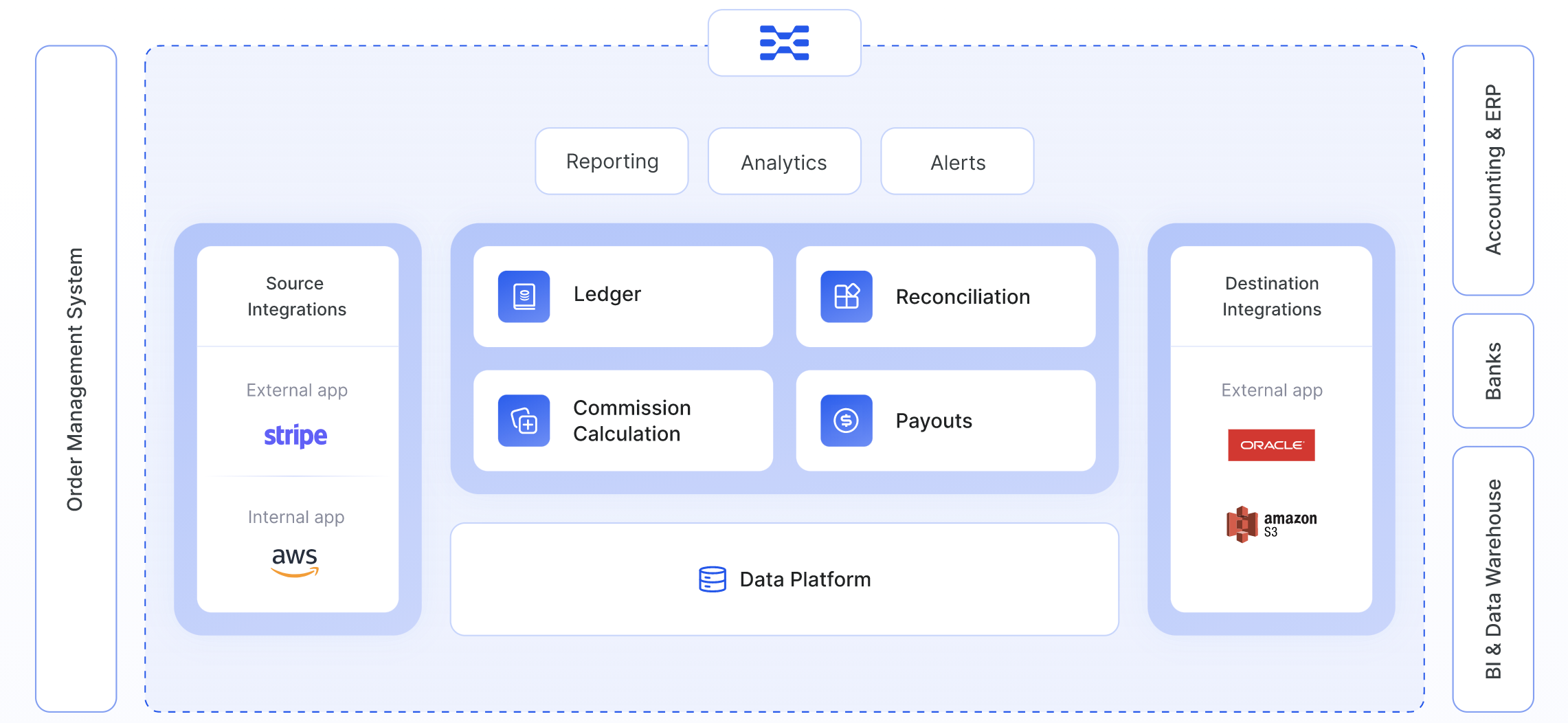Stripe, the outsized fintech out of San Francisco that is valued at $95 billion, is making another acquisition to expand the services it offers alongside its core payments product. The company is acquiring Recko, which has built a platform that lets businesses track and automate payments reconciliation, covering both outgoing and incoming payments and the full ecosystem of inbound and outbound payment sources and receivers. Like Stripe itself, Recko leans heavily on APIs to integrate and work with different data sources.
Recko is based out of Bangalore, India, and significantly this will be Stripe’s first acquisition in the country when the acquisition officially closes (based on customary closing conditions).
Terms of the deal are not being disclosed, Stripe tells us. For some background, though, Recko had raised about $7 million prior to this, with investors including Vertex Ventures, Prime Venture Partners and a number of individuals, including Taavet Hinirikus, the co-founder and former CEO of Wise (nee TransferWise). Founded in 2017 and based out of India, Recko had been seeing a lot of traction internationally, with Deliveroo, Meesho and PharmEasy among its wider list of customers. (That base and the crossover it has with Stripe’s customer base may well have been the trigger for getting on Stripe’s radar.)
Stripe will begin integrating Recko into its wider payments stack, but also notes that existing Recko users will be able to continue using it as before. From the looks of it, the plan is not to limit any of the functionality of the product, which today is partly so effective because of how it precisely works across so much of the fragmentation you already have in the world of accounting and finance.
The acquisition is the latest move from Stripe to build out more services beyond basic payments, a way of capturing more revenue from existing customers, and more customers overall, in particular those using platforms that let them handle accounting and other work that goes hand-in-hand with taking or making payments.
Earlier this year, Stripe acquired Bouncer to integrate card authentication and TaxJar to bring in automatic sales tax tools. International acquisitions — others have included Paystack in Nigeria and Touchtech in Ireland — have also been made strategically both to serve a wider network of territories and to tap into local expertise in those markets. Recko ticks both of those boxes.
Other features and products launched by Stripe to cover other aspects of the payments process include revenue recognition, billing and invoicing services.
Stripe’s moves come as part of a bigger consolidation we’ve been seeing in the world of fintech: a number of strong players have emerged covering very specific “point solutions” in the wider payments ecosystem, and so the stronger platform providers (and Stripe is among them) are now making moves to bring all of these together in the name of more convenience and efficiency for users, and better margins for Stripe itself.
“Payments reconciliation shouldn’t be a mild headache that balloons into a migraine as a company grows—it should be an easy, highly automated process,” said Will Gaybrick, Stripe’s chief product officer, in a blog post announcing the deal. “Stripe helps millions of businesses around the world streamline their revenue management—from subscriptions and invoicing to revenue recognition and bookkeeping. With Recko, we’ll automate their payments reconciliation, a critical input into their overall financial health.”
Reconciliation is one of the trickier aspects of a business, regardless of whether it’s a sole trader, SMB or a larger organization, as it involves balancing money going in and out simultaneously across multiple parties, and the various fees that are potentially paid as that money moves around. The bigger an operation (regardless of organization size), the more complex it becomes. The smaller the organization, the more critical the work is since it’s closely linked to cashflow (and cashflow is often one of the bigger problems for smaller businesses: one reason why Stripe has also built a working capital product to advance money to customers that need it).
A diagram that Recko provides of where it sits in the payments and accounting environment really speaks to just how much integration of so many services is involved:

Image Credits: Recko
Of course, the other side of that argument is that a one-stop shop leads to less competition, since Stripe offering an all-in-one solution becomes too compelling to pass up. (And while there remains a lot of competition in the world of payments, the competition argument becomes more serious when it gets applied in antitrust investigations when that bigger competitive landscape begins to disappear, for example when one platform, like Facebook’s or Microsoft’s, has been seen too much in a particular area of the ecosystem.)
Others, like Primer, which announced a fundraise this week, present another approach, building a platform that makes it easy for businesses to keep using a wide variety of services together, with less pain in the process.
For the startup, it’s a window to scaling in a way that would have been more challenging on its own, aligned with one of the bigger and interesting privately-held companies (I guess we can’t call Stripe a startup anymore?) out there challenging the established players in financial services.
“Joining Stripe is a perfect next chapter for Recko, and we can’t wait to help grow the GDP of the internet by removing the burden of reconciliation complexity,” commented Saurya Prakash Sinha, CEO and co-founder of Recko, in a statement. “Internet businesses need tools that can scale with their growth and automate the tasks required to produce an accurate picture of their financial health.”
